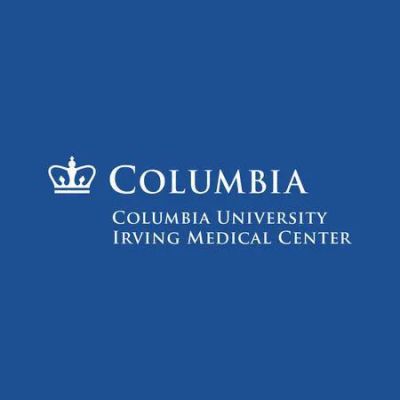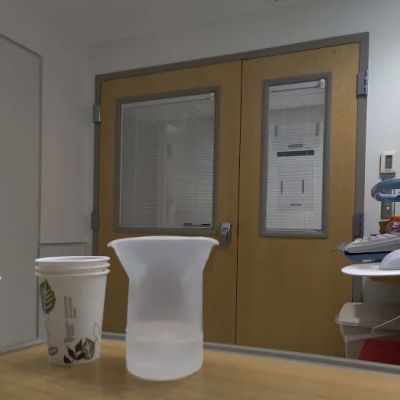Hydration for Optimal Cellular Function: The Key to Health and Wellness
Water is an essential element of life, and its role in maintaining optimal cellular function cannot be overstated. Our bodies are made up of around 60% water, and every cell, tissue, and organ in our body relies on water to perform its functions. Proper hydration is key not only for general health but for the optimal function of every single cell in your body. In this article, we’ll dive into the importance of hydration, how water impacts cellular processes, and why staying hydrated should be a top priority for maintaining your health.

1. The Role of Water in Cellular Function
Water is fundamental to a variety of processes within our cells. Every cell in the human body uses water for a wide range of activities, including nutrient transport, waste removal, temperature regulation, and supporting metabolic processes.
Endeavor Health Northwest Community Hospital
endeavor health northwest community hospital
800 W Central Rd, Arlington Heights, IL 60005, USA

1.1 Water as a Medium for Biochemical Reactions
Cells rely on water to dissolve substances and transport them across cell membranes. Water also acts as a solvent for many biochemical reactions. Without adequate hydration, enzymes that regulate vital processes in the body would not be able to function efficiently, leading to a breakdown in cellular activity.
1.2 Hydration and Nutrient Transport
Water helps facilitate the movement of essential nutrients and oxygen to cells while also aiding the removal of metabolic waste. Cells are constantly engaged in nutrient uptake and waste expulsion. Water serves as a conduit for this process, ensuring that cells receive the necessary nutrients to produce energy and perform their functions effectively.
1.3 Impact on Cellular Metabolism
Cellular metabolism is an ongoing process where cells convert nutrients into energy. Adequate hydration ensures that these metabolic processes run smoothly. Water regulates the temperature of the body and helps maintain a stable internal environment, which is crucial for optimal metabolic efficiency. Inadequate water levels can slow down these processes, leading to fatigue and reduced energy levels.
2. Dehydration and Its Effects on Cellular Function
While the importance of hydration for cellular function is clear, dehydration can have serious consequences for your health. When the body is not properly hydrated, it struggles to carry out the many tasks that water supports. Dehydration can negatively affect everything from cognitive function to physical performance.
2.1 Impaired Cognitive Function
Research has shown that dehydration can lead to cognitive impairments, including difficulty concentrating, poor memory, and slower reaction times. This is because the brain, which is made up of about 75% water, relies on hydration to perform efficiently. Even mild dehydration can significantly reduce mental clarity and focus, making it more challenging to complete everyday tasks.
2.2 Reduced Physical Performance
Dehydration also affects physical performance. When you’re dehydrated, your muscles lose their ability to contract properly, leading to decreased strength, endurance, and overall performance. This is especially important for athletes or anyone engaging in strenuous physical activity. Ensuring proper hydration helps maintain muscle function, stamina, and recovery during and after exercise.
2.3 Impact on the Immune System
A dehydrated body also struggles to fight off infections and maintain healthy tissues. Water helps maintain the mucous membranes in the respiratory tract, which are the first line of defense against pathogens. When dehydrated, the immune system weakens, making the body more susceptible to illnesses and infections.
3. How Much Water Do You Really Need?
The amount of water an individual needs varies based on several factors such as age, weight, activity level, and climate. However, a common recommendation is to drink at least eight 8-ounce glasses of water a day, also known as the “8x8 rule.” While this is a good starting point, some people may need more water, especially if they engage in heavy physical activity or live in hot climates.
3.1 Listen to Your Body
In addition to following general hydration guidelines, it’s important to listen to your body’s signals. Thirst is your body’s way of signaling that it needs water. However, by the time you feel thirsty, you may already be mildly dehydrated. Make a habit of drinking water regularly throughout the day, even when you don’t feel thirsty.
3.2 Hydration and Electrolyte Balance
When you sweat or lose fluids through other means, you not only lose water but also essential electrolytes like sodium, potassium, and magnesium. These electrolytes help regulate water balance and maintain cellular function. For optimal hydration, it’s important to replenish both water and electrolytes. This is why sports drinks and electrolyte-infused water are useful for people engaging in intense physical activities.
4. Hydration Tips for Better Health
Maintaining proper hydration is easier than you think. Here are a few simple tips to help ensure you’re drinking enough water throughout the day:
4.1 Start Your Day with Water
Drinking a glass of water first thing in the morning helps jump-start your metabolism and rehydrates your body after a long night’s sleep. It’s a great way to replenish the fluids lost during sleep and set the tone for the rest of the day.
4.2 Eat Water-Rich Foods
In addition to drinking water, you can stay hydrated by consuming water-rich foods. Fruits like watermelon, cucumbers, and strawberries are packed with water and can help contribute to your daily hydration needs.
4.3 Keep Water Accessible
Keep a water bottle with you throughout the day to remind yourself to drink regularly. Having water readily available makes it easier to sip throughout the day, ensuring you stay hydrated even during busy moments.
5. Conclusion
Hydration is a crucial element for optimal cellular function, overall health, and well-being. By staying properly hydrated, you’re not only supporting cellular processes but also enhancing your cognitive abilities, physical performance, and immune function. Remember to drink plenty of water throughout the day, eat water-rich foods, and listen to your body’s signals. For more tips on maintaining optimal hydration, be sure to check out the resources available at HeartCare Hub, where you can find personalized recommendations for maintaining your health.






















Capital Health Medical Center – Hopewell
capital health medical center hopewell
1 Capital Way, Pennington, NJ 08534, USA